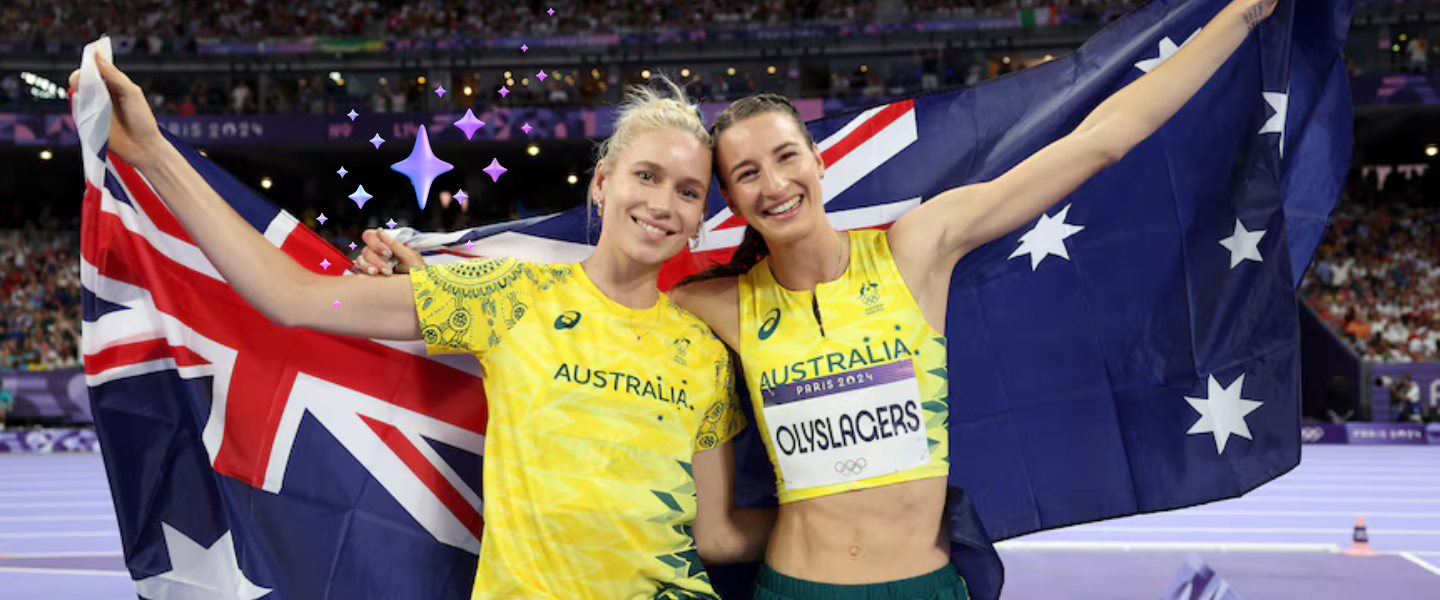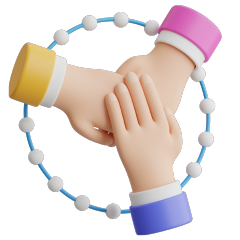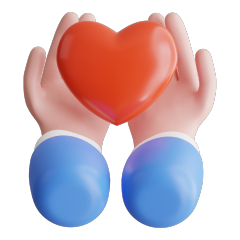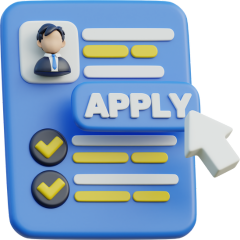What your workplace can learn from the Olympics

We’ve unpacked key elements of sports psychology that can teach us a thing or two in business 💪
The world is obsessed with the 2024 Paris Olympic Games. There’s been huge victories, viral chocolate muffins, wedding proposals and Snoop Dogg on commentary. The competing Olympians are at the peak of their game, and whilst talent and physical commitment is paramount, the psychological preparation of Olympians is an often overlooked key factor for success.
We’ve unpacked key elements of sports psychology that can teach us a thing or two in business 💪
👀 Focus: staying sharp under pressure
The 100m sprint, renowned for its sheer speed and intensity, demands not only peak physical conditioning but also exceptional mental focus.
Techniques used by athletes, such as goal setting, mental visualisation, and stress management, can be applied to the workplace to help individuals and teams stay focused on tasks, manage deadlines, and overcome distractions.
This year, Noah Lyles from the USA took out the gold medal by just 0.005 seconds, a testament to how peak mental focus and psychological resilience can make all the difference in the tightest of margins.

🏆 Resilience: bouncing back from setbacks
The path to Olympic glory is rarely smooth. Resilience is essential, and a growth mindset is fundamental, so athletes can view setbacks as opportunities for growth rather than failures. For organisations, cultures of resilience help employees navigate challenges with a solutions-oriented attitude, turning obstacles into stepping stones for success.
Simone Biles is an athlete in a league of her own. She’s won 9 Olympic medals in her career to date, but the road to the Paris Olympics wasn’t smooth sailing. Three years ago in Tokyo, she suffered a mental block known in the gymnast world as the “twisties”. This is characterised by a disconnect between your brain and body, and as a result, Biles pulled out of the team and competition. Biles has openly discussed her struggles with mental health, including her history of abuse at the hands of gymnastics coach and child abuser Larry Nassar.

🤝 Team building: cohesion and communication
Olympic teams, just like workforces, often consist of individuals with diverse skills and personalities. Cohesion and communication is important to ensure everyone is working towards a common goal.
Beach volleyball is a sport where athletes must synchronize their movements and strategies in real time. Success in this sport hinges on exceptional teamwork and clear communication, as partners need to anticipate each other’s actions, adapt to dynamic play, and support one another both physically and mentally.
You’ll notice the players making hand symbols to one another on the pitch. This is a code for their partners, communicating technical and tactical plays they intend to take.
This level of cohesion on the sand highlights how important communication is in sports but also in the workplace, where team members must collaborate to achieve shared objectives and overcome obstacles. Just as in beach volleyball, effective teamwork and open lines of communication can significantly enhance productivity and drive success in any professional setting.

Conflict can occasionally arise between teams and individuals within an organisation, even when they share common goals. Marketing and sales functions for example, can often butt heads despite sharing the same objectives! In such moments, realising the larger vision and the shared “north star” is crucial for realignment and cohesive teamwork.
We loved this moment between the Fox sisters, where Noemie, who competed against her sister Jess Fox in a thrilling final, clinched the gold medal. Instead of retreating in disappointment, Jess celebrated her sister’s victory by joining her in the river, demonstrating how the power of kinship and teamwork can transcend even the most competitive global stage. This was an inspiring example of the importance of supporting each other and celebrating each other’s wins.

🏁 Goal setting: planning and preparation
Goal setting is the cornerstone for success. Athletes set specific, measurable, achievable, relevant, and time-bound (SMART) goals to stay motivated and track their progress. In a business context, setting clear goals can help teams stay aligned and focused, driving them towards greater achievements and enhancing overall performance.
With SMART goals and commitment, you can achieve anything. Just look at Zhiying Zeng, a Chilean table tennis player of Chinese origin. She just made her Olympics Games debut at the age of 58!

🏋️ Optimisation: Play to your strengths
Your business might not have all the latest technology or the largest budgets, but it’s important to concentrate on what you do have and leverage those strengths. Every organisation has unique qualities and assets—whether it’s a dedicated team, specialised expertise, or a strong company culture. By focusing on these strengths and optimising them, you can create a solid foundation for success and growth.

Take inspiration from Yusuf Dikec, the Turkish shooter who made headlines in Paris. Dikec didn’t rely on the most advanced equipment or the biggest budget (he wore plain clothes and non-protective gear); instead, he maximised his existing resources through intense training, sharp focus, and strategic preparation. His success was a testament to how honing your strengths and working with what you have can lead to exceptional results. Similarly, by identifying and enhancing your business’s core strengths, you can achieve impressive outcomes and drive progress, regardless of the resources at your disposal.
🧠 Stress management: Mental health matters
Whether you’re competing in sports or working a high-pressure job, each role can involve immense stress and pressure. This environment can be overwhelming, making it important for individuals to prioritise their mental health to manage anxiety and maintain peak performance. Just as athletes need to handle stress effectively to excel, professionals must also manage their stress to navigate high-pressure situations successfully. Focusing on mental wellbeing can significantly reduce burnout, enhance resilience, and improve overall job satisfaction.
One effective way to manage stress is through mental wellbeing platforms like Leora, which provide tools and resources for mindfulness, relaxation, and mental health support, providing an outlet for individuals to cope with daily pressures.
Another approach is finding constructive outlets, like how Olympic diver Tom Daley channels his stress and energy into knitting. Engaging in hobbies or activities that provide relaxation and satisfaction can help shift focus away from stressors, promoting a healthier work-life balance.

By integrating these practices into daily routines, individuals can better manage the demands of high-pressure environments, leading to improved mental health, reduced stress levels, and sustained peak performance.
How your business can apply these principals
- Training programs: Incorporate mental training techniques into employee development programs. This could include offering workshops on visualisation, team building, and stress management.
- Resilience training: Create a supportive environment where setbacks are viewed as learning experiences. Encourage a growth mindset and provide resources for employees to build resilience.
- Goal-oriented culture: Implement SMART goal-setting processes and celebrate milestones to keep your teams motivated.
- Stress management: Introduce stress management workshops, relaxation techniques, and mental health resources to help employees manage pressure effectively.
- Team building: Invest in activities that promote teamwork, communication, and mutual support to enhance team dynamics and performance
Leora is a workplace wellness platform that enables employees access to a network of accredited and experienced therapists. Through one connected wellbeing platform, users can schedule therapy appointments, seek immediate advice from qualified counsellors and utilise a library of wellness resources.





